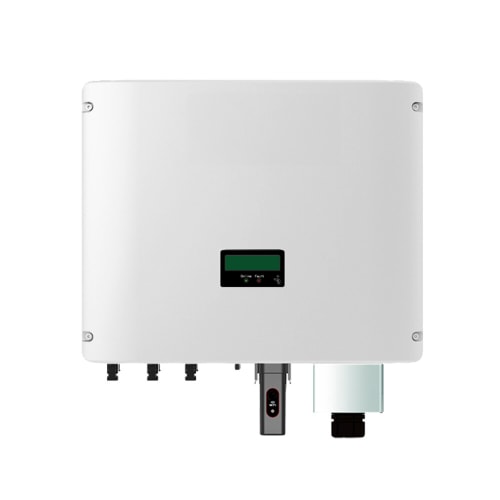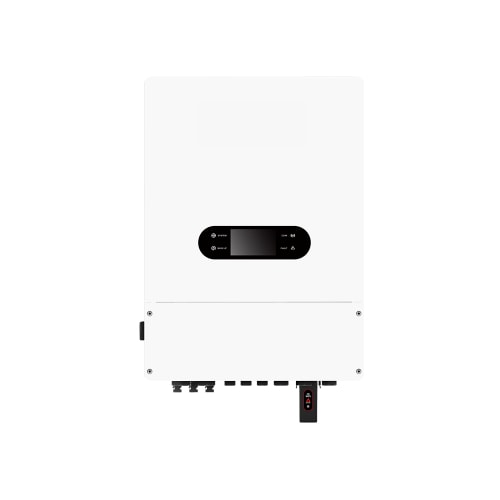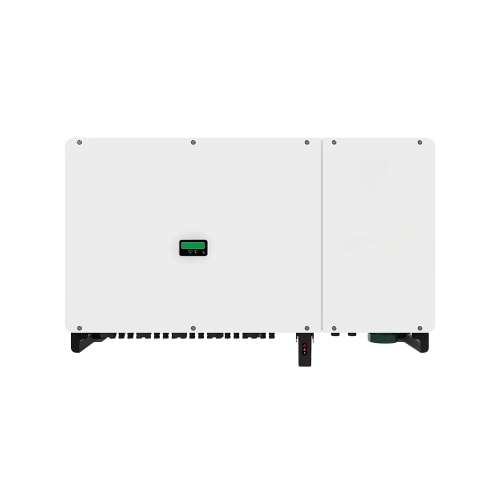NOUVELLES
Bienvenue sur mon blog !
Avant de plonger dans le vif du sujet, n'hésitez pas à me rejoindre sur mes réseaux sociaux où je partage mes idées, échange avec la communauté et publie des mises à jour. Voici comment me contacter :
Facebook:https://www.facebook.com/profile.php?id=61576738655239
Commençons maintenant notre voyage ensemble. J'espère que vous trouverez ce contenu instructif, captivant et utile.
Table des matières
Introduction

In an era marked by rising energy costs, growing environmental concerns, and increasingly frequent power outages, solar energy has emerged as a practical, sustainable solution for both residential and commercial users. However, capturing sunlight through solar panels is just the first step in creating a functional solar energy system. The true transformation happens through a device called a solar energy inverter.
A solar energy inverter is the cornerstone of any solar power backup system. It is responsible for converting the raw energy collected from sunlight—direct current (DC)—into alternating current (AC), which is the usable form of electricity required by most household appliances and business operations. Without this conversion process, the solar power generated would be unusable for day-to-day applications.
This blog dives deep into the various roles a solar energy inverter plays in power backup systems. From understanding how it works to choosing the right model for your needs, this article aims to be a comprehensive guide for buyers looking to optimize their solar backup solutions.
What Is a Solar Energy Inverter?
UN solar energy inverter is an intelligent piece of electrical equipment that transforms DC electricity from solar panels into AC electricity. This process is vital because almost every modern appliance—refrigerators, televisions, computers, lighting systems, and industrial machinery—runs on AC power.
There are three main categories of solar energy inverters:
- String Inverters
These are the most commonly used inverters and are connected to multiple solar panels arranged in a series. They are cost-effective and suitable for installations with uniform sunlight exposure. - Microinverters
Installed individually on each solar panel, microinverters offer higher efficiency, especially in scenarios where panels may receive different levels of sunlight due to shading or placement. - Hybrid Inverters
These are designed to work with both solar panels and battery storage systems, making them ideal for power backup applications. Hybrid inverters can seamlessly switch between solar energy, battery power, and grid power based on availability.
Without the correct inverter in place, even the most sophisticated solar panel systems will fail to deliver reliable, usable energy.
How a Solar Energy Inverter Supports Power Backup

When it comes to ensuring uninterrupted power, the solar energy inverter is not just a conversion tool—it acts as the brain of the entire solar system. Its role in power backup goes beyond converting DC to AC. It facilitates energy flow, ensures optimal efficiency, and provides a reliable switch-over during power outages.
Here’s how a solar energy inverter enhances power backup systems:
- Energy Conversion: The primary function is to make solar energy compatible with everyday electrical appliances.
- Battery Charging and Management: When solar energy production exceeds consumption, the inverter diverts excess energy to battery storage. This stored energy becomes crucial during times when solar generation is low or nonexistent, such as at night or during cloudy weather.
- Load Prioritization: Advanced inverters can prioritize power supply to critical systems (e.g., medical devices, refrigeration, security systems) during a blackout.
- Automatic Switching: In case of grid failure, the inverter automatically switches to battery power within milliseconds, ensuring a seamless power supply.
- System Monitoring and Control: Many modern inverters come with smart features and mobile apps that allow real-time energy usage tracking, diagnostics, and performance optimization.
In essence, the solar energy inverter ensures that energy from the sun is not only harvested but also effectively stored and delivered when most needed.
Key Features That Make a Solar Energy Inverter Ideal for Backup Use
Not all solar inverters are created equal, especially when it comes to backup functionality. If you’re aiming to use solar power as a reliable backup source, your inverter must be equipped with specific features that support this use case.
Here are the key features that make a solar energy inverter ideal for backup power:
- Battery Compatibility: Your inverter must support popular battery chemistries like Lithium-ion, Lead-Acid, and Gel batteries to offer flexibility in storage options.
- High Conversion Efficiency: A higher efficiency rating (typically 95% or above) means less energy loss during the DC to AC conversion process.
- Smart Monitoring Systems: These allow homeowners and technicians to view performance metrics, battery status, and power flow directly from their smartphones or online dashboards.
- Integrated Surge Protection: Protects both the inverter and connected appliances from sudden voltage spikes.
- Quick Switchover Time: Inverters used for backup should switch from grid to battery in under 20 milliseconds to prevent downtime.
- Évolutivité: Some models allow for future expansion, making them suitable for growing power needs or additional panels.
These features collectively ensure that your solar inverter can handle dynamic energy conditions and provide a consistent power supply when the grid goes down.
Advantages of Using a Solar Energy Inverter for Backup Power
The use of a solar energy inverter in a power backup system offers a wide range of benefits. It is not only environmentally responsible but also economically advantageous in the long run.
Below is a table that highlights the key advantages:
| Advantage | Description |
|---|---|
| Reliability | Provides uninterrupted power during outages and emergencies. |
| Cost Efficiency | Reduces or eliminates fuel costs associated with traditional generators. |
| Eco-Friendliness | Minimizes reliance on fossil fuels and reduces greenhouse gas emissions. |
| Low Maintenance | Fewer moving parts than generators; requires minimal servicing. |
| Smart Integration | Works seamlessly with home automation and smart energy management systems. |
| Noise-Free Operation | Unlike diesel generators, inverters operate silently, offering peace of mind. |
These benefits make the solar energy inverter an invaluable part of any modern, sustainable, and resilient energy system.
Choosing the Right Solar Energy Inverter for Your Backup Needs
Selecting the right solar energy inverter requires careful consideration of several factors. A mismatch can lead to inefficiencies, frequent system failures, and even safety risks.
Here’s a detailed guide to help you make the right choice:
- Calculate Your Load: Make a list of all essential appliances you want to power during an outage and determine the total wattage.
- Battery Size and Type: Match the inverter with batteries that suit your usage pattern—deep cycle batteries are generally preferred for backup applications.
- Grid-Tied vs. Off-Grid: Decide whether you want a grid-tied system with backup capabilities or a completely off-grid setup.
- Scalability Options: Opt for an inverter that allows additional panels or battery units to be added in the future.
- Brand and Warranty: Look for inverters from manufacturers offering at least a 5- to 10-year warranty and excellent after-sales support.
- Certifications and Compliance: Ensure the inverter meets local and international safety and performance standards.
Making the right choice not only enhances performance but also increases the return on investment over time.
Common Installation Scenarios for a Solar Energy Inverter

A solar energy inverter can be installed in a wide variety of settings. Here are some typical use cases:
Residential Homes
Inverters are commonly used in home solar systems to reduce dependency on the grid and provide backup during blackouts. They can power lighting, fans, refrigerators, and even home office equipment.
Commercial Buildings
Offices and factories use inverters to maintain operations during outages, protecting computers, servers, and production lines.
Remote or Rural Locations
In areas where grid access is unreliable or non-existent, inverters combined with solar panels and batteries provide essential power for lighting, cooking, and communication.
Emergency Facilities
Critical infrastructure like hospitals and fire stations use hybrid inverters that can draw power from solar, batteries, or the grid to ensure 24/7 operation.
These varied scenarios highlight the adaptability of solar inverters in delivering backup power across diverse sectors.
Maintenance Tips to Prolong the Life of Your Solar Energy Inverter

Like any electronic device, a solar energy inverter requires periodic maintenance to ensure it continues to perform efficiently.
Here are some best practices:
- Visual Inspection: Check for physical damage, rust, or burn marks regularly.
- Clean Surroundings: Ensure that the inverter is installed in a cool, dry, and dust-free environment.
- Monitor Software Alerts: Most smart inverters come with warning notifications—never ignore these.
- Check Cabling and Connections: Loose wires or corroded terminals can cause efficiency drops or hazards.
- Professional Servicing: Schedule professional inspections at least once a year to keep the inverter operating at peak capacity.
By following these simple maintenance tips, you can ensure your inverter provides years of reliable power backup.
Conclusion
To summarize, the solar energy inverter is more than just a piece of equipment—it is the backbone of any reliable, efficient solar power backup system. From seamless energy conversion to smart energy management, it ensures that your lights stay on when the grid goes dark.
Whether you’re preparing your home for storm season or equipping a commercial facility for uninterrupted operations, choosing the right solar energy inverter is a critical investment in your energy security.
Ready to take control of your power backup? Contactez-nous now to explore our range of solar energy inverter solutions and get personalized recommendations tailored to your needs.
FAQ
What size solar energy inverter do I need?
This depends on your total power consumption and the size of your solar panel array. A solar professional can perform a load analysis to help you decide.
Est-ce qu'un solar energy inverter function without batteries?
Yes, it can still convert energy for immediate use, but it won’t provide backup during outages unless batteries are included in the system.
Are all solar inverters compatible with all battery types?
No, you must choose an inverter that supports the battery chemistry you intend to use. Check manufacturer guidelines for compatibility.

